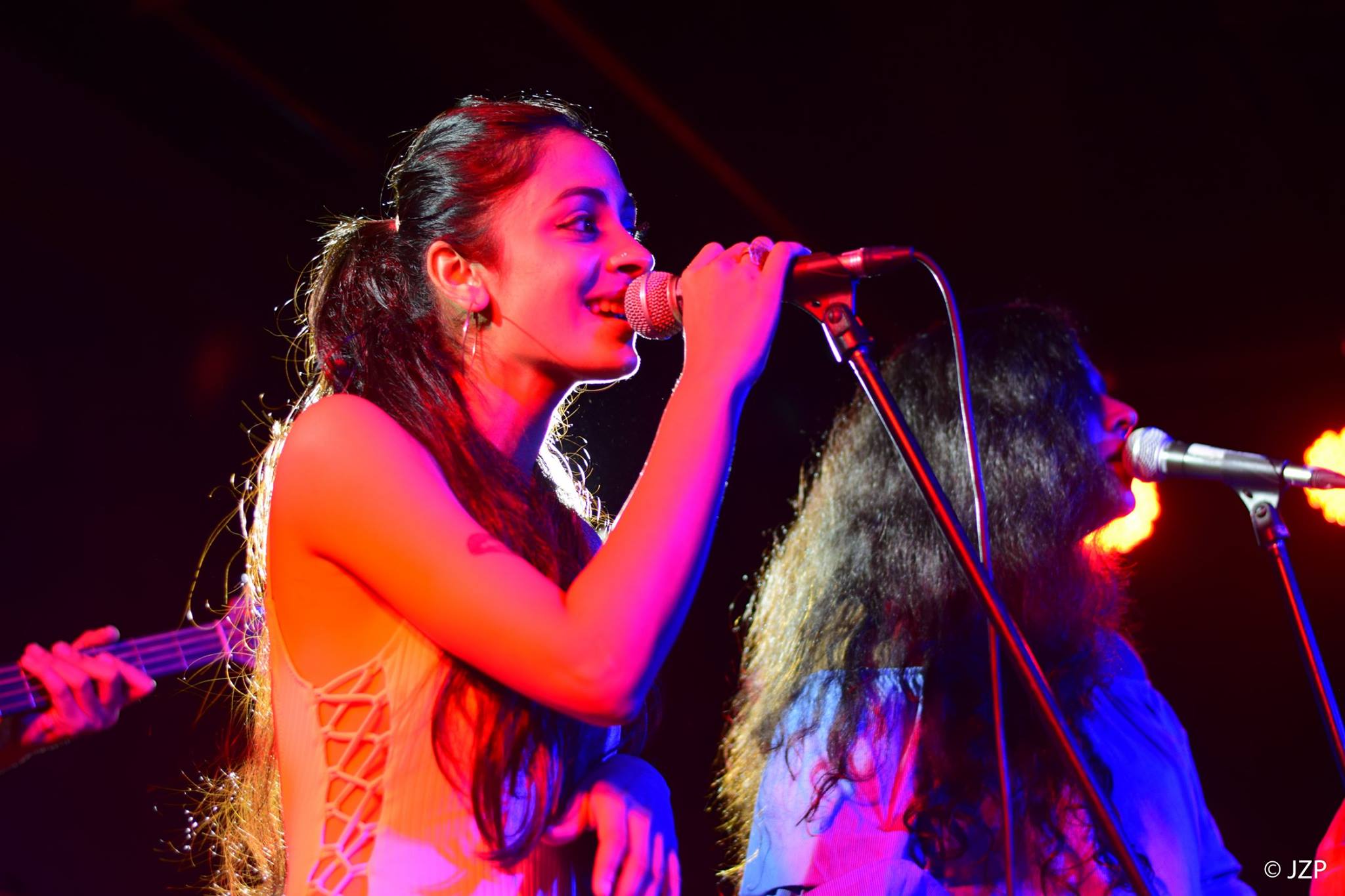Founder Aftab Khan discusses the challenges and triumphs of working on the gig series

Ambika Nayak of Kimochi Youkai performs at the third edition of Generation WHY. Photo: Courtesy of Generation WHY
With three successful editions in Mumbai so far, independent music property Generation WHY has been fulfilling its promise of introducing audiences to brand new music by some of the freshest names on the scene. The brainchild of Aftab Khan, former Programmer/Events Executive at Hard Rock Café India, Generation WHY has partnered with Rolling Stone India, Furtado’s Music and Mumbai gig space Antisocial for its last two sessions and has given a platform to several indie acts.
Each edition of Generation WHY features performances by four up-and-coming artists from different genres. Â The past three gigs have seen sets by hip-hop crews Gari-B and Friends and Swadesi, electronic artists like Tansane and Native Indian, alt rock bands HOOK, Cat Kamikazee and others. “Finding an audience for acts that are not the most experienced and not too popular, time and again is the biggest challenge,” says Khan.
Regardless, the fourth edition which takes place tomorrow night at AntiSocial in Mumbai will continue to promote acts on the rise like pop-punk rockers Dossers Urge, Â Death By Fungi guitarist Vrishank Menon’s project Little Whales, electronica collective Jwala and singer-songwriter Aditi Ramesh.
In this exclusive interview, Khan outlines the task of building and running a sustainable indie music property:
Aftab Khan at the second edition of Generation WHY. Photo: Mayuresh Vartak
How has your overall experience been with running Generation WHY?
It’s been brilliant, to be honest. We’ve come in contact with some very talented people and witnessed amazing performances. There have been difficulties along the way but we’ve come back stronger each time. Also, some friends have been along for the ride since the start and their support has been invaluable. Sigmund Quadros, Noel Mathew, Mayuresh Vartak, Pooja Barge and Reva Sarma are some of them and they’re a blessing.
What have been your biggest challenges so far?
Organizing this show independently, without any sort of financial backing from anyone, has been the biggest challenge. There are a thousand little costs that you tend to not think about that add up and make things progressively more difficult. Thankfully, so far we have been sustainable since day one and the plan is to go from merely sustainable to profitable over the course of the next few editions. Apart from that, finding an audience for acts that are not the most experienced and not too popular, time and again is the biggest challenge. Even on that front, thanks to a concerted effort by every single act that has been part of the lineup, we have delivered and drawn an audience that keeps getting bigger every successive edition.
Has the audience been receptive? What has been the response from venues – are they open to new formats?
Certain venues in this country are more forward thinking than others and we’ve been fortunate to have worked with them. We’re on our third edition with antiSOCIAL and they’ve always been super receptive and open minded. We will very soon be working with another venue in a different city who are similarly supportive. A format like this with the variety of sounds that it brings to the table needs a venue to look beyond simple, easily digestible fare and these guys have been fantastic in those terms. Of course, at the same time it needs to make commercial sense for a venue and we make sure we deliver that from our end.
The audiences have begun warming up to the concept. At the start of each show, I make it a point to ask the audience to stay back and check out every act. There is a culture in the scene that people only watch their friends or their favorite band perform and pretty much stay away from the stage for the rest of the show. That’s changing slowly. It will still happen, but even if you come for a friend’s band and stick around for just one other act that you found interesting, my job is done. At the end of the day, this is what helps any band bring in newer fans and build a larger fan base.
Do you think a gig series format like yours is sustainable and profitable in the long run? Have you been able to figure out a robust business model?
It’s a work in progress. Currently we are a sustainable property. The intention so far was to prove that independent shows without any kind of backing are possible and can be pulled off by pretty much anyone as long as you have a good idea and know what you’re doing. Going forward, the aim is to make Generation WHY not just sustainable, but something that turns a profit and pays every band more than satisfactorily.
What is in store for Generation WHY in the next few months?
A new look. A leaner, meaner Gen WHY. And more shows. September will be our first edition at a new venue in an all new city. We’re bringing the concept to a whole new audience and we’re hoping that they welcome us with open arms just like Bombay has. As always, the mission continues to be delving into and showcasing newer sounds, acts and talent. That will be a constant.
New Delhi-based artist talks about how she came to work with Snarky Puppy band member…
Artist and Badshah collaborator teams up with producer NDS for the dancefloor-friendly bilingual song
A historical fantasy romance where the lead characters mysteriously swap bodies, triggering a roller coaster…
The star discussed prepping for dream role and her deluxe version of Eternal Sunshine in…
Games like 1000xResist and Another Crab's Treasure are filling the void left by weakened AAA…
Tuborg unites music and community at Sunburn Goa’s 18th Edition